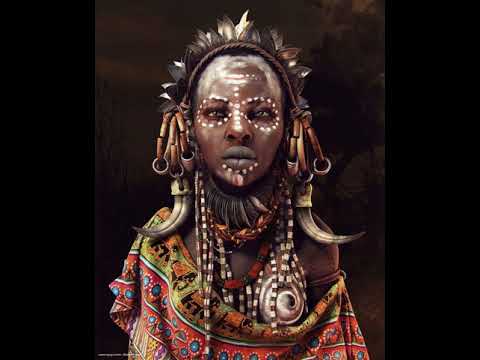These rhythms and sounds have subsequently been adapted by newer genres like rock and hip hop. Likewise, African popular music has adopted elements, particularly the musical instruments and recording studio techniques of western music. The term “afro-pop” (also styled afro pop) is sometimes used to refer to contemporary African pop music. The term does not refer to a specific style or sound, but is used as a general term for African popular music.
Cuban music has been popular in sub-Saharan Africa since the mid twentieth century. It was Cuban music that more than any other, that provided the initial template for Afro-pop. To the Africans, clave-based Cuban popular music sounded both familiar and exotic.
Congolese bands started doing Cuban covers and singing the lyrics phonetically. Soon, they were creating their own original Cuban-like compositions, with French lyrics. The Congolese called this new music rumba. The Africans adapted guajeos to electric guitars and gave them their own regional flavour. The guitar-based music gradually spread out from the Congo, increasingly taking on local sensibilities. This process eventually resulted in the establishment of several different distinct regional genres, such as soukous.
Cuban popular music played a major role in the development of many contemporary genres of African popular music. It was the Cuban connection, but increasingly also New York salsa, that provided the major and enduring influences—the ones that went deeper than earlier imitation or passing fashion. The Cuban connection began very early and was to last at least twenty years, being gradually absorbed and re-Africanised. The re-working of Afro-Cuban rhythmic patterns by Africans brings the rhythms full circle.
The re-working of the harmonic patterns reveals a striking difference in perception. The I IV V IV harmonic progression, so common in Cuban music, is heard in pop music all across the African continent, thanks to the influence of Cuban music. Those chords move in accordance with the basic tenets of Western music theory. However, as Gerhard Kubik points out, performers of African popular music do not necessarily perceive these progressions in the same way: The harmonic cycle of C-F-G-F [I-IV-V-IV] prominent in Congo/Zaire popular music simply cannot be defined as a progression from tonic to subdominant to dominant and back to subdominant (on which it ends) because in the performer’s appreciation they are of equal status, and not in any hierarchical order as in Western music.
African salsa points not so much to a return of salsa to African soil but to a complex process of cultural appropriation between two regions of the so-called Third World. Since the mid-1990s African artists have also been very active through the super-group Africando, where African and New York musicians mix with leading African singers such as Bambino Diabate, Ricardo Lemvo, Ismael Lo and Salif Keita.
More recently, Kenya, Nigeria and South Africa have been spearheading the Afro-pop movement. Heavy, percussive club beats with irresistible hooks and street-wise raps in Swahili, Yoruba, Igbo or pidgin English—Nigerian pop music, increasingly known by the much-debated term Afrobeats, is the sound that moves Lagos and the sound of Africa moves the world. Artists including Junior & Pretty, the Remedies and Plantashun Boiz brought a new, youth-centric style drawing heavily on r&b, hip-hop and reggae, with plenty of local style.





Nice breakdown and insight into Afro-music!
Interesting article!